Motorola Razr Vs. Samsung Galaxy Fold: The War Of Foldable Phones
Dhir Acharya - Nov 20, 2019
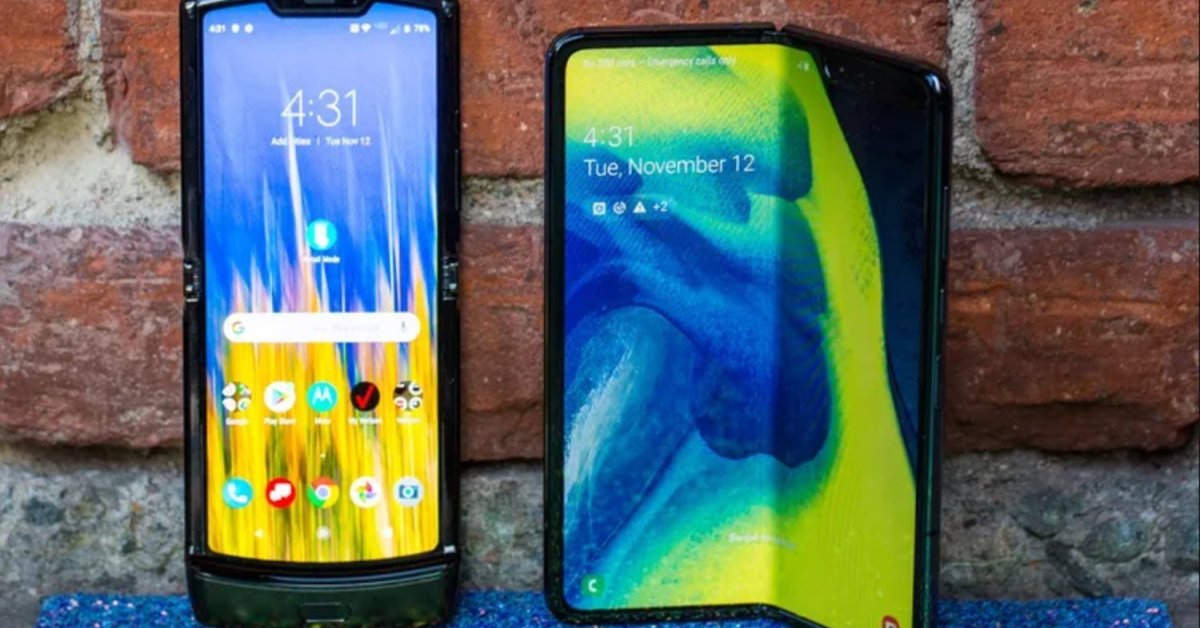
Motorola Razr costs a lot less than Samsung Galaxy Fold and their designs are different too. So let's put them in comparison to see which one is better.
- Google May Be Working On A Foldable Phone That Looks Like This
- Huawei Mate X2, The Next Foldable Phone, Will Come Out On February 22
- Apple Is Working On Two Foldable iPhone Prototypes
The newly announced Motorola Razr foldable phone costs $1,500, which is not exactly cheap, but compared with the $1,980 Galaxy Fold from Samsung, the Razr seems much more affordable. It also looks sharper and more like a phone to boot. However, while the Razr has a more compelling design, the Fold appears to be a better upgrade.
With an additional $500 of cost, you get more, six cameras instead of two, 75 percent more battery capacity as well as useful extras.
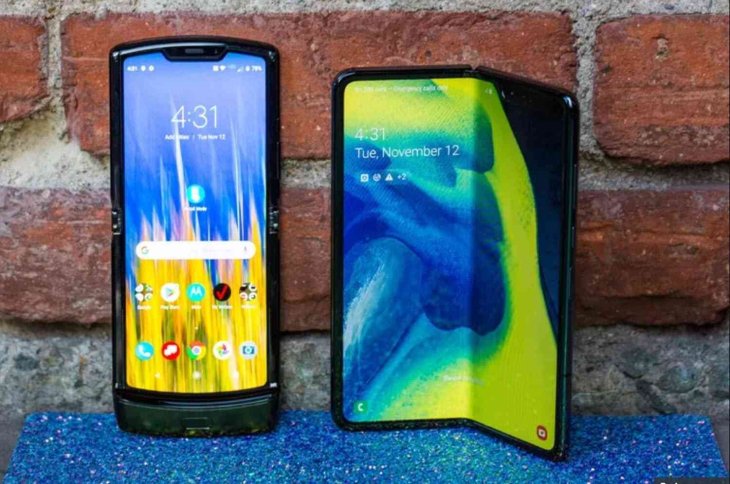
However, both of them come with trade-offs regarding design and features. And in this article, we will look to that for an early comparison between these two foldable phones.
Design: The Razr feels more thought out and practical
The Razr flips vertically, making it look more like a phone than the Galaxy Fold that opens like a book.
The idea behind the Razr is not about a phone-tablet, but a portable device for those who want something that fits their pockets. But the Fold fits the pocket in its own way as it folds into a slim, tall device.
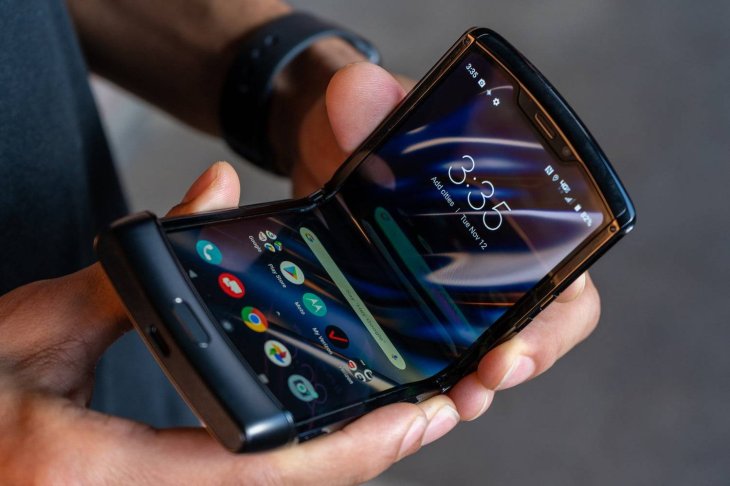
The most impressive thing about Motorola’s foldable phone is that all of its elements make sense. While this device has its buttons, bezels, and cameras placed at the right positions, the Fold comes with a thick bezel and a huge notch.
Screen: The Razr wins when it comes to the crease
There’s nothing you can do the make the crease go away as long as the screen is made of soft plastic, at least for now. But with the horizontally bent Razr, the crease is short. Its crease is only 2.8 inches long as opposed to the 6.3-inch crease on the Fold.
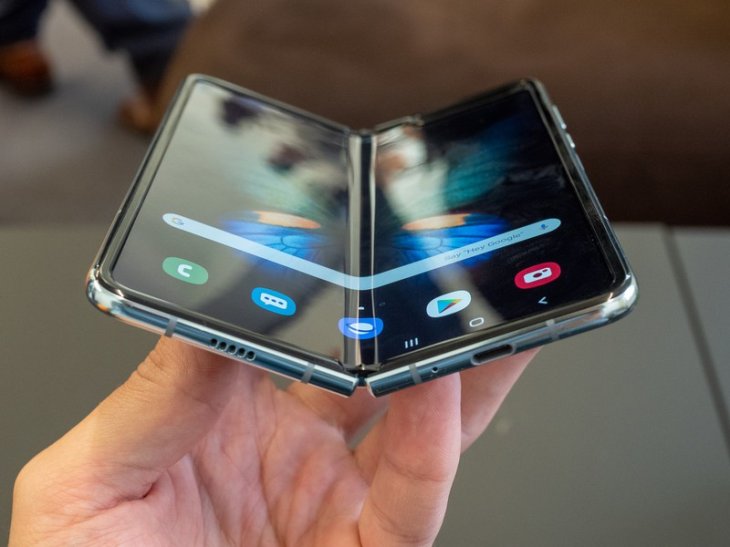
Both Samsung and Motorola have built steel plates to support the fragile screens. On the other hand, Motorola claims that it gives the Razr a hard plastic coat on top of its electronic elements, which is stronger than that on the Fold.
The Galaxy Fold lets you do more on the smaller display
The outer screen of the Fold measures 4.6 inches while that of the Razr measures just 2.7 inches.
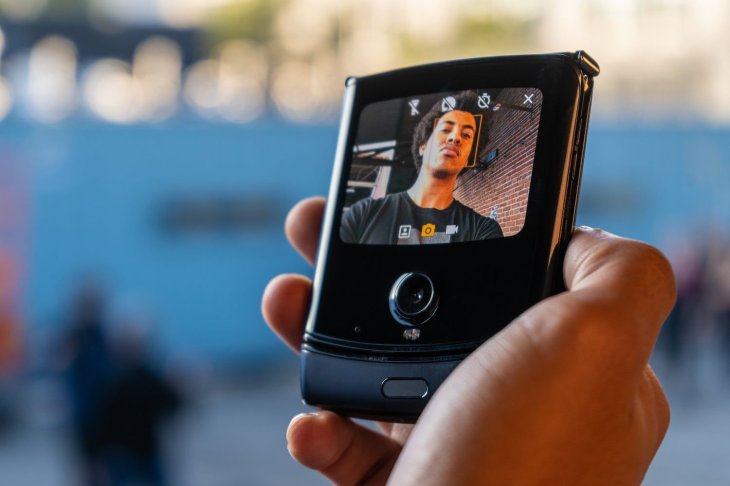
The Razr’s smaller screen is meant to display battery status, signal, and notifications. But the Fold’s outer screen lets you launch any app then transfer it to the inside, making it more useful in case you’re using the phone on the go.
But the outer screen on the Razr offers you all the basic things to, it lets you take selfies, have a phone call or video call over Bluetooth connection or speakerphone, and listen to music that initially begins on the inside screen.
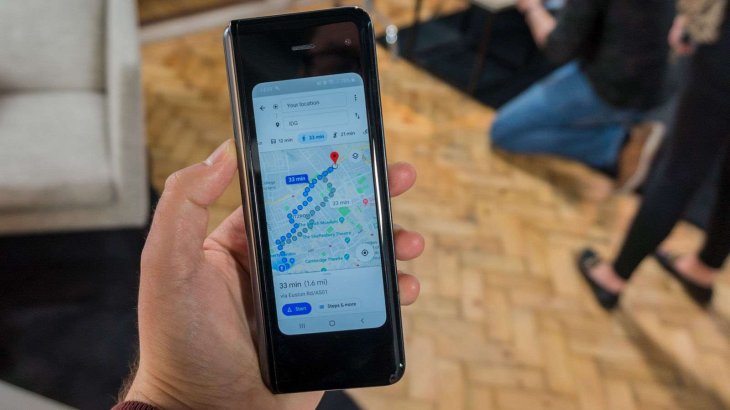
The hinges on both phones are in the danger zone
Motorola’s foldable phone has an excellent hinge, but its gears are exposed partially on the inside and outside of the device, meaning fibers, paper, and crumbs can get in the gears.
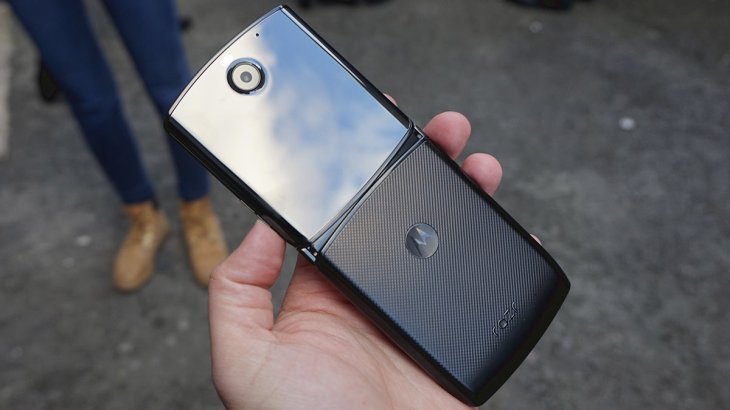
Plus, there is a narrow channel separating the bezel from the screen area. And dust can get in easily. But the most important thing is how easily the top coat can be separated from the plastic OLED display.
Samsung faced the same problem when early review units removed the protective film that was mistaken with the optional dust guard applied on many devices. The removal resulted in irreparable damage. But while Razr’s biggest problem was dust, the Fold was exposed to much greater risk.
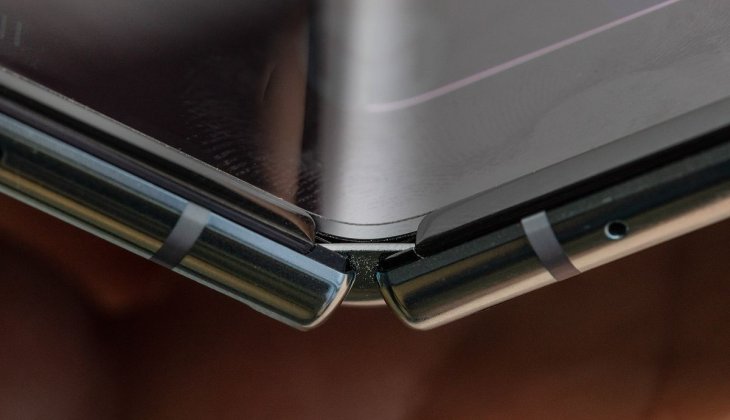
The larger screen on the Fold is better for videos
The Razr has a 21:9 ratio, which is not ideal for every video you watch and since the screen is too narrow top to bottom, you would have to watch in landscape mode almost all the time.
But the Fold is weird in its own way too with a large notch sticking into every video you watch. However, its big inner screen allows watching videos more comfortably.
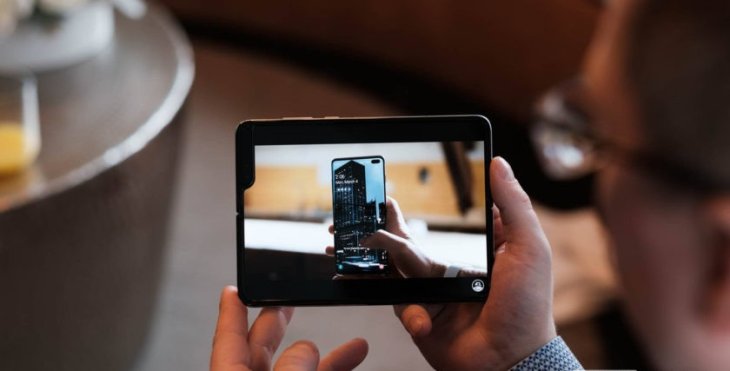
The camera system on the Razr looks more elegant but offers fewer features
There are six advanced cameras on the Samsung Galaxy Fold for excellent pictures regardless of the screen you use. That may be a bit too much. It would be better if Samsung designed the phone differently to sport fewer cameras.
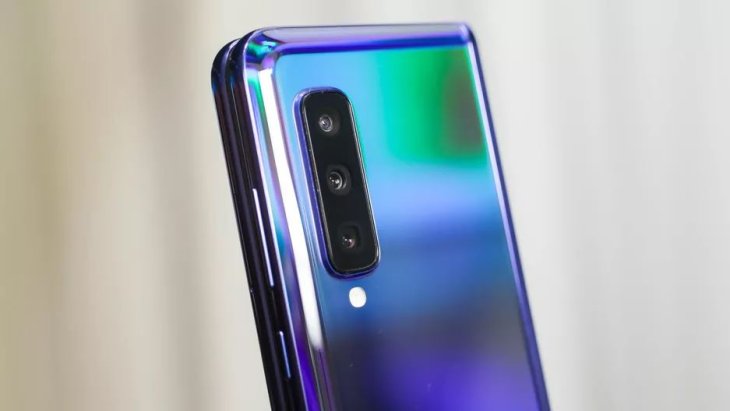
The problem with the Razr is completely opposite. It has just one camera on the rear, meaning no wide-angle capability and no telephoto usually expected on a premium device. You would get both of them with the Fold besides a primary camera and three sensors on the front. The Fold comes with a time of flight sensor, which is useful for low-light shots, but not for shooting a new focal range.
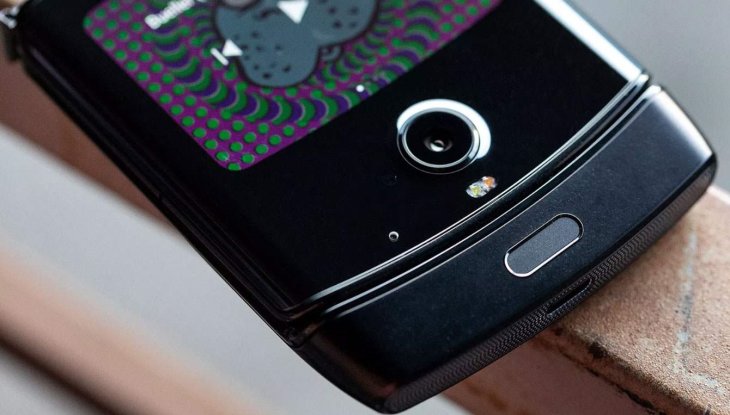
Now, the Razr’s 16MP camera is placed below the tiny outer display and you will take most of your photos with it. There is another 5MP lens on the inside of the device, which is meant for video calls.
The Fold wins when it comes to extras
Samsung Galaxy Fold is made a premium phone that should stand side by side with the Note 10 Plus as well as other top-end phones of the company.
Not only multiple cameras, but the Fold also offers a larger screen, a more powerful chip, and wireless charging on its back. The Fold’s RAM and storage also double those of the Razr.
The battery capacity of the Razr remains unclear
Motorola makes a promise that the Razr will survive all day, but we don’t how that turns out considering its battery capacity is just 2,500 mAh. To compare, the Pixel 4 has a 2,800mAh battery.
Moreover, the batteries are split into two, place in either half of the phone. This makes the phone’s weight balance on hand but less efficient than one piece. We also saw the Fold’s battery underperform despite the capacity of 4,380 mAh.
However, the Razr has much smaller displays and the mid-tier Snapdragon 710 processor that consumes less power.
All in all, while the Galaxy Fold has been out and we can go deep into its performance, there’s a lot unknown about the Razr’s real-life performance. So there remain many details to get to later.
Featured Stories

ICT News - Feb 18, 2026
Google's Project Toscana: Elevating Pixel Face Unlock to Rival Apple's Face ID

Mobile - Feb 17, 2026
Anticipating the Samsung Galaxy S26 and S26+: Key Rumors and Specs

Mobile - Feb 16, 2026
Xiaomi Launches Affordable Tracker to Compete with Apple's AirTag

Mobile - Feb 14, 2026
Android 17 Beta 1 Now Available for Pixel Devices
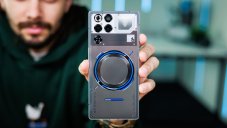
Mobile - Feb 12, 2026
What is the Most Powerful Gaming Phone Currently?
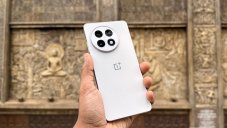
Mobile - Feb 11, 2026
Top 5 Cheap and Efficient Gaming Phones in 2026

Mobile - Jan 31, 2026
Generalist vs Specialist: Why the Redmi Note Series Remains Xiaomi's Easiest...
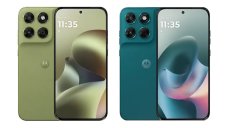
Mobile - Jan 30, 2026
Motorola Unveils Moto G67 and Moto G77: 5200mAh Battery, 6.78-Inch AMOLED Display,...
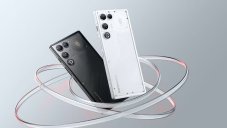
Mobile - Jan 30, 2026
Red Magic 11 Air Debuts Worldwide: Snapdragon 8 Elite Powerhouse with Advanced ICE...

Mobile - Jan 29, 2026
Guide to Sharing Your Contact Card via the mAadhaar App
Read more

Mobile- Feb 17, 2026
Anticipating the Samsung Galaxy S26 and S26+: Key Rumors and Specs
The Samsung Galaxy S26 series is on the horizon, sparking excitement among tech enthusiasts.

Mobile- Feb 16, 2026
Xiaomi Launches Affordable Tracker to Compete with Apple's AirTag
For users tired of ecosystem lock-in or high prices, the Xiaomi Tag represents a compelling, no-frills option that delivers core functionality at a fraction of the cost.

ICT News- Feb 18, 2026
Google's Project Toscana: Elevating Pixel Face Unlock to Rival Apple's Face ID
As the smartphone landscape evolves, Google's push toward superior face unlock technology underscores its ambition to close the gap with Apple in user security and convenience.
Comments
Sort by Newest | Popular